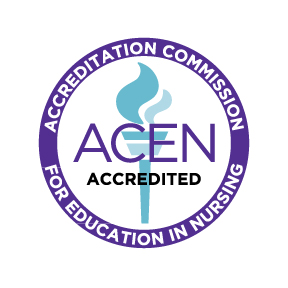General Nursing Program Information
The Valencia Nursing Program was organized in 1970 with the first nursing class of 44 students admitted in September 1971. The nursing program was implemented in response to the closure of a local diploma program offered by Orange Memorial Hospital, now Orlando Regional Health Care System. The program added a Licensed Practical Nurse bridge option in the Fall of 1983. Today, Valencia's program is one of the best for preparing men and women for a nursing career, by connecting students directly to situations nurses face today. The program offers real-life lessons to help nurses build skills and confidence.
Mission
The Associate in Science in Nursing degree program at Valencia College prepares students for RN licensure, employment in healthcare, and the pursuit of advanced degrees in nursing by promoting academic excellence and high ethical standards.
Admissions
Students submit applications once all of the admission criteria and Test of Essential Academic Skills requirements have been met. Valencia admits 120 students to the Traditional Nursing Track in the Fall term, 120 students in the Spring Term, and 70 students in the Summer Term.
First-term Nursing students select either West or Osceola Campus from the available offerings at the time of course registration. Nursing I and II are taught on Osceola Campus; all other Nursing courses are taught only on West Campus. The Nursing Program is full-time during the week. We do not offer an evening or weekend program.
The Valencia Nursing program, both the Traditional Track and the Accelerated Track in Nursing (ATN), have been coordinated with local health care agencies, the State Department of Education and the State Board of Nursing and is accredited by the Accreditation Commission for Education in Nursing (ACEN).
Accreditation
The Valencia College Nursing Program has been coordinated with local health care agencies, the State Department of Education and the State Board of Nursing.
While all teaching programs must be approved by the State Board of Nursing, Valencia's program is also accredited by the Accreditation Commission for Education in Nursing (ACEN), which certifies that the program meets both the highest state and national standards. Many universities, including the armed forces, require transfer students to have completed their associate's degree at an ACEN-accredited institution. Students who complete the program are prepared to take the National Council Licensure Exam (NCLEX-RN) and can go on to work in a nursing career and/or pursue higher degrees.
The Valencia College Nursing Program is approved by the State Board of Nursing and accredited by the Accreditation Commission for Education in Nursing (ACEN).
3343 Peachtree Road NE, Suite 850
Atlanta, GA 30326
http://acenursing.org/
Phone: 404-975-5000
Fax: 404-975-5020
Statement of Philosophy
The Valencia College Nursing faculty believes learning is a lifelong process. Faculty facilitates a collaborative, inclusive, safe, and supportive learning environment promoting nursing reasoning, clinical decision making, and compassionate caring among a diverse student population. The Valencia College Nursing faculty promotes a culturally competent nursing workforce by exemplifying for students the values of individual knowledge and personal beliefs.
The Valencia College Nursing faculty believes in multiple pathways to access nursing education.The Nursing Program provides students with opportunities for academic excellence, personal growth, and career development. The Nursing Program is founded on the values of honesty, integrity, professionalism, high ethical standards, and civic responsibility.
End of Program Sudent Learning Outcomes
Evidence of success will be demonstrated as the Valencia College Nursing graduate’s ability to:
- Evaluate evidenced-based nursing care to appraise client safety.
- Interpret data from information technology to inform decision-making.
- Interpret subjective and objective data to coordinate safe client care.
- Employ legal and ethical standards of nursing conduct during all interactions.
- Expand behaviors of scientific inquiry to promote client outcomes.
Accreditation
The Associate in Science in Nursing program at Valencia College at the West and Osceola Campuses located in Orlando and Kissimmee Florida is accredited by the: Accreditation Commission for Education in Nursing (ACEN).
3390 Peachtree Road NE, Suite 1400 Atlanta, GA 30326
(404) 975-5000
The most recent accreditation decision made by the ACEN Board of Commissioners for the Valencia College nursing program is Continuing Accreditation with Conditions.
View the public information disclosed by the ACEN regarding this program on the ACEN website.

